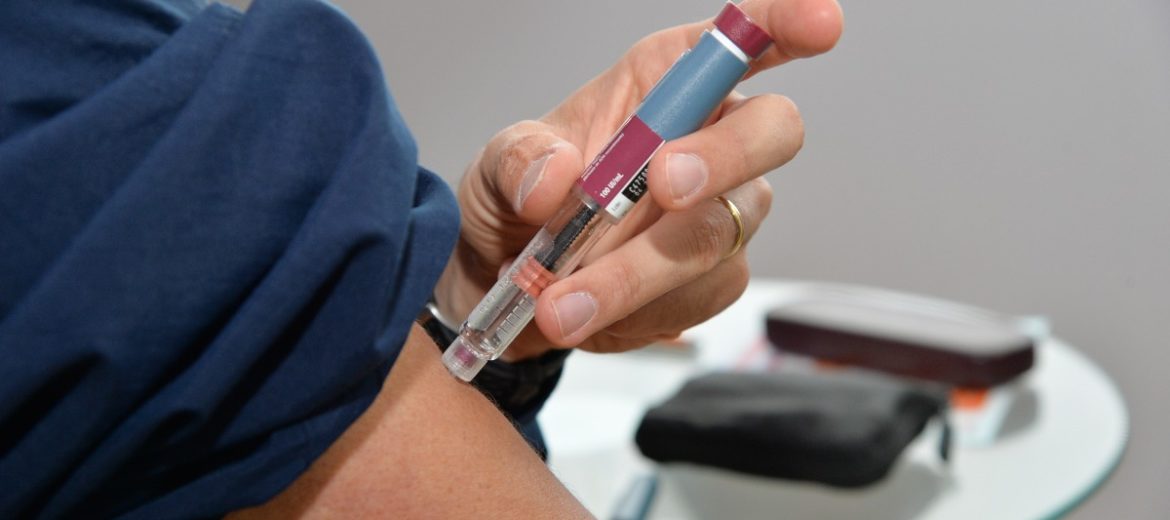 A person using an insulin injection
A person using an insulin injection
Eve was diagnosed with type 1 diabetes when she was 10.
At first, it felt like her world had turned upside down.
Daily blood sugar checks, insulin injections, and constant vigilance over her diet became her new reality.
But over time, Eve learned how to live with her condition, not just manage it.
Her routine started to feel normal—checking her blood sugar before meals, calculating carbs, and adjusting her insulin doses accordingly.
The emotional weight of diabetes was still there, but she found strength in the support of her family, friends and her healthcare team.
"Diabetes is a part of who I am. But it doesn’t define me. I choose to live fully, and that’s what keeps me going,” Eve said.
As a person living with Diabetes, November 14 is a big deal for Eve.
This is the day set aside to raise awareness around the disease and the importance of its proper management, which has been on the rise across the globe.
According to a 2023 report by the International Diabetes Federation (IDF), approximately 537 million adults aged between 20 and 79 years were living with diabetes in 2021.
The data approximated that the number will rise to around 700 million by 2045 if the current trend continues.
The report also showed that diabetes 2 cases are higher compared to diabetes 1 which is popular with children and young adults
World Diabetes Day was established in 1991 by IDF and the World Health Organisation (WHO) and became an official United Nations Day in 2006 with the passage of United Nations Resolution 61/225.
According to WHO, this year’s theme, “Breaking Barriers, Bridging Gaps,” underscores its commitment to reducing the risk of diabetes.
It also shows WHO’s commitment to ensure that all people who are diagnosed with diabetes have access to equitable, comprehensive, affordable and quality treatment and care.
What is Diabetes
Healthline defines diabetes as a metabolic disease that causes high blood sugar.
This means that your body either does not make enough insulin or cannot effectively use the insulin it makes.
The hormone insulin moves sugar from the blood into your cells to be stored or used for energy.
If this malfunctions, you may have diabetes.
Untreated high blood sugar from diabetes can damage your nerves, eyes, kidneys, and other organs.
Diabetes affects people of all ages.
Most forms of diabetes are chronic, but all forms are manageable with medications and/or lifestyle changes.
Types of Diabetes
• Type
2: Type 2 diabetes occurs when your body becomes resistant to insulin, and
sugar builds up in your blood.
• Gestational: This is high blood sugar during pregnancy. Insulin-blocking hormones produced by the placenta cause this type of diabetes.
• Prediabetes:
This type is the stage before Type 2 diabetes. Your blood glucose levels are
higher than normal but not high enough to be officially diagnosed with Type 2
diabetes.
General symptoms of diabetes
• Increased hunger
• Increased
thirst
Weight loss
• Frequent urination
• Extreme fatigue
• Blurry
vision
Sores that don’t heal
• Numbness
or tingling in your hands or feet
• Insulin resistance
• Autoimmune disease
• Hormonal imbalances
• Pancreatic damage
• Genetic mutations
Complications associated with diabetes include
• Heart disease, heart attack, and stroke
• Neuropathy – According to Healthline, diabetic neuropathy is a type of nerve damage that develops gradually and is caused by long-term high blood sugar levels
• Nephropathy – Healthline says diabetic nephropathy is a type of progressive kidney disease that may occur in people who have diabetes.
• Retinopathy and vision loss
• Hearing loss
• Foot damage, such as infections and sores that don’t heal
• Skin conditions, such as bacterial and fungal infections
• Depression
• Dementia – This is a decrease in mental ability that affects your everyday functioning
How to manage diabetes
• Blood sugar monitoring
• Oral diabetes medications.
• Insulin injections
• Choose a healthy balanced diet. If you take insulin, counting carbs in the food and drinks you consume is a large part of management. The amount of carbs you eat determines how much insulin you need at meals. Healthy eating habits can also help you manage your weight and reduce your heart disease risk.
• Exercise to reduce insulin resistance
How to prevent diabetes
• Eat a healthy diet, such as the Mediterranean diet.
According to Cleveland Clinic, the Mediterranean Diet emphasises plant-based foods and healthy fats.
You eat mostly veggies, fruits and whole grains. Extra virgin olive oil is the main source of fat.
The Mediterranean Diet can lower your risk of cardiovascular disease and many other chronic conditions.
• Get physically active. Aim for 30 minutes a day at least five days a week.
• Work to achieve a weight that’s healthy for you.
• Manage your stress.
• Limit alcohol intake.
• Get adequate sleep (typically 7 to 9 hours) and seek treatment for sleep disorders.
• Quit smoking.
• Take medications as directed by your healthcare provider to manage existing risk factors for heart disease.






